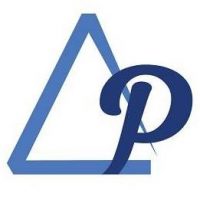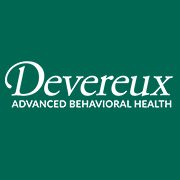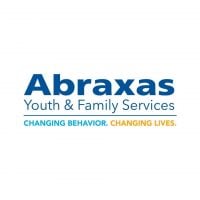Buxmont Academy & Community Service Foundation - Pottstown Campus
Drug Rehab Center in Pottstown, Pennsylvania
Buxmont Academy & Community Service Foundation - Pottstown Campus is an accredited and state-licensed facility providing comprehensive care options, from outpatient to intensive care, to treat alcohol, drug and opioid issues such as addiction, dual diagnosis, gambling addiction, internet use disorder, HIV/AIDS or hepatitis education, life skills, and employment counseling and more.
About This Pottstown, PA Facility
Buxmont Academy & Community Service Foundation - Pottstown Campus is a non-profit behavioral health facility located in Pottstown, Pennsylvania. It specializes in treating mental health disorders and substance addictions through personalized, evidence-based care.
- Utilizes a range of therapeutic practices to promote meaningful lifestyle changes
- Accredited by the Joint Commission and licensed by Pennsylvania
- Offers detox, medication management, therapy, and relapse prevention services
Buxmont Academy upholds its mission of helping youth and families grow through restorative practices. It is accredited by SAMHSA and holds a state license.
The facility treats individuals struggling with issues like learning difficulties, drug/alcohol abuse, legal problems, aggression, trauma, mental health disorders, and defiance. Treatment includes detox, residential and outpatient programs, therapy, life skills, and relapse prevention.
Genders
Ages
Modality
Additional
Accreditations
State License
SAMHSA
Conditions and Issues Treated
Substance abuse refers to the intensive and inappropriate use of psychoactive substances. Psychoactive substances are those that affect brain function. These include illegal drugs, alcohol, and even the excessive use of prescription drugs. The overuse of psychoactive substances leads to severe physical or psychological dependence. It also affects the social life and relationships of the affected individual. Substance abuse is treatable.
The duration of treatment at Buxmont Academy & Community Service Foundation - Pottstown Campus in Pottstown can require weeks or even months depending on the severity of the condition as there is a risk of relapse. Treatment options include medications, counseling sessions, various types of behavioral therapy, and group therapy in different combinations.
Addiction to prescription opioid painkillers like oxycodone and hydrocodone, and illicit opioids such as heroin, leads to potentially life-threatening withdrawal symptoms when discontinued. Opioid addiction treatment typically involves an inpatient stay at facilities like Buxmont Academy & Community Service Foundation - Pottstown Campus to make sure they get through withdrawal safely. Treatment also includes comprehensive mental health counseling.
Levels of Care Offered
This center offers a variety of custom treatment tailored to individual recovery. Currently available are Aftercare Support, Drug Rehab, Intensive Outpatient, Outpatient, with additional therapies available as listed below.
An intensive outpatient program is a good option for someone in Pennsylvania with a milder or less severe addiction. An IOP may involve daily meetings at a treatment facility, along with personal counseling and peer meetings. Some IOP programs offer half-day treatment, while others offer full-day programs. Buxmont Academy & Community Service Foundation - Pottstown Campus‘s IOP is customized per individual.
Outpatient programs are the standard for addiction treatment. About 9 in 10 U.S. adolescents entering addiction treatment enroll in these programs, so you’re not alone in Pottstown, PA. Treatment is delivered in different settings – offices, clinics, and primary care clinics.
Facilities offer a variety of services, such as individual and group counseling and family therapy. During the sessions, you work with a team of experts that include: General physicians, Psychiatrists, Social Workers, and Psychologists. The main goals of outpatient recovery programs are to help addicted individuals reduce drug use and addictive behaviors, eventually becoming entirely sober.
Aftercare comprises services that help recovering addicts readjust to normal day-to-day Pennsylvania activities. It can last a year or even longer. Services include individual and family counseling, medications to reduce cravings, and treatment of psychiatric and other medical conditions. Aftercare support begins once you have completed earlier stages of treatment.
Buxmont Academy & Community Service Foundation - Pottstown Campus‘s Therapies & Programs
In addiction recovery at Buxmont Academy & Community Service Foundation - Pottstown Campus, therapy plays a significant role. This helps patients get to the root of their addiction and discover how the problems that contributed to their use can be handled better. Therapy can be performed in a group and one on one settings. The patient interacts with the therapist in a one-on-one atmosphere during individual therapy. This encourages them to reflect on the underlying addiction problems and develop ways to avoid potential future abuse.
Recovering from addiction involves recovering relationships as well. One of the most common areas of stress and damage during addiction is in intimate relationships. Couples therapy at Buxmont Academy & Community Service Foundation - Pottstown Campus can rebuild trust and joy that may have been damaged. Addiction involves everyone in the family, not only the addict.
Family roles can change in damaging ways that may require professional help to rebalance. Successful intimate relationships can decrease the chances for relapse by ensuring a healthy environment after rehab in Pottstown, PA.
Addiction and alcoholism affect the entire family. For this reason, family therapy is vital to a person’s recovery from addiction. In contrast to couples counseling, family therapy at Buxmont Academy & Community Service Foundation - Pottstown Campus may include siblings, children, parents, and other significant people in the recovering person’s life. Family support is one of the most important pillars of recovery.
Many people turn to drugs and alcohol as a way of processing trauma that has affected them in the past. Trauma can include abuse, neglect, the loss of a loved one and other unpleasant incidents. Trauma therapy at Buxmont Academy & Community Service Foundation - Pottstown Campus helps patients process trauma. It gives them the tools to deal with it in a healthier manner.
Dialectical behavioral therapy (DBT) is a type of Cognitive Behavioral Therapy that focuses on eliminating specific negative thoughts such as suicidal thoughts that can potentially lead to an individual inflicting self-harm. It is useful in the treatment of patients exhibiting uncontrollable emotions, intense mood swings, and borderline personality disorders.
The term “Dialectic” means the integration of opposites. In the substance abuse context, DBT refers to accepting the patient’s addiction and working to change their thoughts and behavior. It improves life skills such as controlling the intense emotions without reacting impulsively, resolving the interpersonal conflicts effectively, and promoting awareness about self and others.
Cognitive Behavioral Therapy (CBT) examines the relationship between a patient’s thoughts, feelings and behaviors. Buxmont Academy & Community Service Foundation - Pottstown Campus aims to establish a healthy response to thoughts and feelings as an alternative to turning to drugs and alcohol. It also promotes healthy communication between addicts and those around them. It is and effective therapy for people suffering with all types of addictions.
Rational Emotive Behavior Therapy (REBT) is a type of cognitive therapy. It is based on the principle that irrational thoughts are responsible for the emotional and behavioral changes in addiction. So, the therapy starts with identifying the underlying irrational thoughts. These thoughts are then challenged and opposed logically and then replaced with positive thoughts. It also helps to change unwanted behavior with techniques such as meditation.
By imparting positive thoughts and emotions, Rational Emotive Behavior Therapy (REBT) makes the individual self-reliant with a capacity to handle the emotional and behavioral issues in future by themselves without professional help. This self-dependence benefits the patients and prevent relapses.
Life skills pertain to the skill sets a person should possess to become successful in life. Examples are time management, budgeting, and social abilities. Life skills therapy highlights the fact that addiction recovery is more than just a person’s ability to go through their day-to-day without resorting to substance use in Pottstown, PA once they leave the facility.
The recovery technique used by Alcoholics Anonymous is the 12 step program, but it can relate to any form of addiction. The 12 steps that addicts must take on the road to recovery are explained. Measures include acknowledging that you have a problem and agreeing to turn around your life. The curriculum, instructed by Buxmont Academy & Community Service Foundation - Pottstown Campus, also requires a belief in a greater power and making amends to others.
Contingency Management (CM), also called motivational incentives, is a type of pure behavioral therapy. It’s based on the idea that behavior is shaped, motivated, or controlled by its outcomes. CM is a clinical application at Buxmont Academy & Community Service Foundation - Pottstown Campus of operant conditioning, which helps clients eliminate unwanted behaviors by the use of positive and negative reinforcement.
Payment Options Accepted
For specific insurance or payment methods please contact us.
Is your insurance accepted?
Ask an expert, call (888) 674-0062
Additional Details
Specifics, location, and helpful extra information.
Pottstown, Pennsylvania 19464 Phone Number(610) 807-3555 Meta DetailsUpdated April 15, 2024
Staff Verified
What else do people call Buxmont Academy & Community Service Foundation – Pottstown Campus?
People have occasionally also searched for “Community Service Foundation & Buxmont Academy in Pennsylvania”
Patient Reviews
There are no reviews yet. Be the first one to write one.
Pottstown, Pennsylvania Addiction Information
Pennsylvania ranks 14th in the nation for drug-related deaths. More than 10% of all deaths in Pennsylvania have been related to drugs and alcohol. 30% of Pennsylvania youth reportedly drink alcohol monthly, with more than 20,000 teenagers having an alcohol problem. The rate of opioid misuse in Pennsylvania is double the national average.
In Pottstown, PA, common drugs are heroin, alcohol, marijuana, and cocaine. The number of people smoking weed has increased by 14% in 2016. 9% of teenagers are alcohol addicts. From 2014 to 2016, the number of people smoking weed has increased by 14%. There are about 2 overdoses per every 100,000 people in Pottstown each year. Drug treatment options in Pottstown include inpatient and outpatient rehab, 12-step programs, and counseling.
Treatment in Nearby Cities
- Upper Darby, PA (27.8 mi.)
- Saint Marys, PA (173.4 mi.)
- Dallas, PA (75.9 mi.)
- Lansdowne, PA (29.4 mi.)
- Lemoyne, PA (67.2 mi.)
Centers near Buxmont Academy & Community Service Foundation - Pottstown Campus
The facility name, logo and brand are the property and registered trademarks of Buxmont Academy & Community Service Foundation - Pottstown Campus, and are being used for identification and informational purposes only. Use of these names, logos and brands shall not imply endorsement. RehabNow.org is not affiliated with or sponsored by Buxmont Academy & Community Service Foundation - Pottstown Campus.











